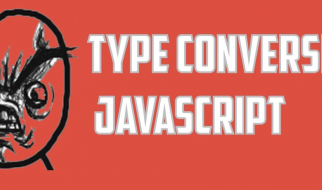Besides 3 excellent definition essay examples, you?ll find extremely helpful tips and tricks for writing definition essays.

Defining any term is like looking at it under magnifying glass. Sometimes even the best guideline isn?t enough to explain how to write definition essay, which is where definition essay examples will become your ultimate tool for getting the work done right.
Without further ado, let?s get right into it!
This is the flow of our guide:
- Definition essay pro tips
- Definition essay example 1 ? Business ethics
- Definition essay example 2 ? Emotional intelligence
- Definition essay example 3 ? Cultural appropriation
Definition essay pro tips
Before focusing on definition essay examples, let?s review some practical tips that will help you figure out the process of writing a definition essay:
1.Picking the right word
To write a great definition essay you need to pick the right topic or term to focus on. To choose the best term for your definition essay, make sure that it is:
- Has complex meaning
- Disputable
- Can mean different things to different people
2. Creating a catchy hook
Let?s face it, certain definition essay examples can be boring because such terms as love, friendship, and creativity, have been discussed too many times. To get readers? attention and take your essay to the next level, create a catchy hook! A good hook is:
- The first sentence of the essay introduction
- Relevant to the topic
- Interesting and/or unexpected
- Creative
- Corresponds the style of the essay
- Connects with the content of the introduction
3. Writing solid thesis statement
In thesis statement, you?ll provide the main idea of your essay to readers and usually it is one sentence in the introduction of your essay. Your thesis statement should:
- Be clear and concise
- Reflect your point of view
- Rely on the arguments in your essay
- Be logically placed within the content of your introduction
- Serve as a guideline for your whole essay, where every argument should be relevant for this thesis
4. Presenting conflicts and arguments
We figured out that a term of your choice should be disputable and can mean different things for different people, which is why best definition essay examples are about terms that are negotiable and cause conflict of opinions. Something undecided and arguable will make a great essay! Make sure to:
- Present two or more points of view
- Provide arguments that prove some points of view (that contradict your main idea/thesis statement) wrong
- Compare and contrast different viewpoints
- Provide examples if possible
- Reflect your own perception and understanding of the term, highlight your own viewpoints
5. Concluding and proofreading
Whatever you do, never underestimate the importance of writing conclusions and then proofreading the whole thing. In conclusion, you will:
- Summarize key points
- Restate your thesis statement referring to key arguments
- Make sure that your conclusion is relevant to introduction and body paragraphs
- Avoid introducing new facts and findings
While proofreading:
- Reread your paper and check spelling, grammar, punctuation
- Make sure that the main idea is referred to consistently throughout the whole essay
- Make sure that you didn?t copy anything from other sources to avoid plagiarism, because it?s the best way of getting the lowest grade
Now you?ve learned all the pro tips, let?s proceed to 3 excellent definition essay examples focusing on business ethics, emotional intelligence, and cultural appropriation to see all of them in action!
Find your Nerd to ease your homework pain at Nerdify. In anything. As long as it?s legal. ?

Definition essay example 1 ? Business ethics
Should businesses be ethical and socially responsible or is it too much to ask? As a society, we are highly aware of the role and impact of businesses in social, economic, ecological, and cultural environments, which is why we expect companies to act responsibly and think ahead instead of focusing solely on corporate gains. The concept of business ethics means applying moral principles to decision making processes, while ethical decisions have far-reaching implications (Woiceshyn, 2011). Businesses do not operate in vacuum and inevitably interact with numerous internal and external stakeholders on a daily basis, which suggests that companies should have a guideline or framework to ensure ethical decision making at all times. The fact that the concept of business ethics is not regulated by law and is rather broad results in that every business entity defines it differently.
While analyzing the concept of business ethics it is important to understand that businesses need to balance their own corporate gains and potential long-term benefits from ethical decision making. In the article by Galbreath (2010) we find evidence that ethical responsibility comes third after economic and legal responsibilities. In particular, the first and foremost responsibility of enterprises is to create products that customers want, create jobs, and generate profits, while the second responsibility is to comply with all relevant laws (Galbreath, 2010). Ethical responsibility in business in this perspective refers to meeting social expectations not written as law (Galbreath, 2010). The major issue in defining business ethics is similar to the definition of ethics as a whole, to be exact the fact that each company can have different moral compass and different evaluation of what is wrong and right. Therefore, one way or another business ethics is about following certain moral principles.
Business ethics is generally associated with doing the right thing, which is ultimately good in case of ethical decisions. Nyberg (2008) states that ethics is ambiguous and it is difficult to evaluate whether a decision is good or bad due to the vast variety of consequences. In companies, everyday activities are not about solving major ethical dilemmas, but completing mundane tasks, which is why business ethics is drastically different from ethics as a whole. In fact, large companies can have ethical codes not to ensure ethical decision making, but to improve their image and create symbolic value for stakeholders (Nyberg, 2008). In addition, having an ethical code does not prevent companies from making unethical decisions, which is suggested by numerous corporate scandals. Overall, business ethics is not about claiming to follow ethical principles, but making practical steps in ethical decision making and taking responsibility for long-term effects of current actions.
Consequently, business ethics is difficult to define because this term differs for each business entity and can mean different things depending on the environment businesses operate in. Ethical responsibilities are not a priority for corporations, unlike economic and legal responsibilities, while having ethical code does not ensure ethical decision making. Overall, business ethics implies three crucial elements, namely doing what is right, awareness about long-term effects of present actions, and practical ethical decision making.
References
Galbreath, J. (2010). How does corporate social responsibility benefit firms? Evidence from Australia. European Business Review, 22(4), 411?431.
Woiceshyn, J. (2011). A model for ethical decision making in business: Reasoning, intuition, and rational moral principles. Journal of business Ethics, 104(3), 311?323.
Nyberg, D. (2008). The morality of everyday activities: Not the right, but the good thing to do. Journal of Business Ethics, 81(3), 587?598.
Definition essay example 2 ? Emotional intelligence
Theodore Roosevelt once said that, ?No one cares how much you know, until they know how much you care? (Tredgold, 2016). Indeed, humans are creatures of emotion rather than logic and emotions are critical for us in everyday life, which means that the concept of emotional intelligence is especially important. Communicating with other people and interpreting their emotions is essential for us to make effective decisions based on this information. Defining emotional intelligence is a difficult task because this concept includes variety of skills and abilities, while the process of their development is not fully clear.
As a rule, emotional intelligence definitions include the concept of cognitive abilities of processing information about emotions. In the article by Mayer, Roberts, and Barsade (2008) we find a notion that emotional intelligence refers to the ?ability to carry out accurate reasoning focused on emotions? as well as the ability to use emotional knowledge to enhance thought (p.507). In other words, this definition refers to evaluating emotions of other people in a certain way that ultimately helps improve the process of decision making by providing additional information about the environment and situations. However, in definition provided by Salovey, Mayer, Caruso, and Yoo (2008) indicates that emotional intelligence refers not only to the ability to process information about emotions of other people, but to perceive, appraise, and express emotion accurately and adaptively. To be exact, this stance on emotional intelligence refers to a broader spectrum of skills and abilities because it addresses the role of expressing emotions in response to the environment. Overall, the concept of emotional intelligence does not have a generally accepted definition.
Despite variety of definitions, emotional intelligence is about the ability to effectively adapt to the environment. Nelis, Quoidbach, Mikolajczak, and Hansenne (2009) state that emotional intelligence has four dimensions, including emotional knowledge, emotional identification, emotional utilization, and emotional regulation. This definition of emotional intelligence determines this ability as a way people respond to pressure, which is another aspect of adaptation. While intelligence is defined as the ability to learn and reason about specific information, emotional intelligence refers to the mental ability to reason about information about emotions (Mayer et al., 2008). The relationship between emotional intelligence and adaptation is important to include in the definition of this concept because this ability creates the basis for understanding other people?s emotions and express our own emotions.
Consequently, emotional intelligence refers to a broad spectrum of skills and abilities, including identification and understanding of emotions, their utilization, and developing relevant and adequate emotional response. The value of emotional intelligence is immense because this ability helps us adapt, which is why emotional intelligence should be defined as effective adaptation skill based on reasoning of information about emotions.
References
Tredgold, G. (2016). 55 inspiring quotes that show the power of emotional intelligence. Inc. Retrieved from https://www.inc.com/gordon-tredgold/55-inspiring-quotes-that-show-the-importance-of-emotional-intelligence.html
Mayer, J. D., Roberts, R. D., & Barsade, S. G. (2008). Human abilities: Emotional intelligence. Annu. Rev. Psychol., 59, 507?536.
Salovey, P., Mayer, J. D., Caruso, D., & Yoo, S. H. (2008). Chapter 11: The positive psychology of emotional intelligence. Counterpoints, 336, 185?208.
Nelis, D., Quoidbach, J., Mikolajczak, M., & Hansenne, M. (2009). Increasing emotional intelligence:(How) is it possible?. Personality and individual differences, 47(1), 36?41.
Find your Nerd to ease your homework pain at Nerdify. In anything. As long as it?s legal. ?

Definition essay example 3 ? Cultural appropriation
Cambridge dictionary defines cultural appropriation as taking or using elements of other cultures, especially without showing respect and understanding. The concept of cultural appropriation sets no boundaries as to what exactly is respectful or disrespectful, while in the age of social media any case of using an element of other culture becomes an issue for the society. There is a thin line between admiring and celebrating other cultures and disrespecting them, which is why the concept of cultural appropriation is extremely difficult to define.
Today, globalization processes develop and grow extensively, triggering intense cultural exchange worldwide. As a rule, the concept of cultural appropriation refers to cases when ethnic groups that are dominant take and use elements of minority cultures, which makes cultural appropriation a form of racism and discrimination (Rodriguez, 2006). However, the concept of cultural appropriation as we know it does not provide any explanation of how to distinguish discrimination and celebration or another culture. In diverse world, it is critical to be able to differentiate between intentional abuse and using elements of other cultures as a form of admiration (Young & Haley, 2009). In this perspective, it is essential to turn to moral principles and use moral compass to determine whether every particular case is indeed cultural appropriation, which implies misuse, misrepresentation, and theft of cultural elements, or their ethical use (Matthes, 2016). In other words, increase of the use of the concept of cultural appropriation in recent years is associated with misunderstanding of this term, especially in terms of distinguishing ethical and unethical use of elements of other cultures.
The concept of cultural appropriation has been transformed into a tool to attack anyone who takes and uses elements of other cultures, regardless of the underlying motives and reasoning behind it. O?Neill (2015) states that lack of clarity of this term causes conflicts and deteriorates universalism, which is one of the defining features of present day society. While the numbers of articles and posts about cultural appropriation cases has skyrocketed in recent years, it is essential to take them with a grain of salt and evaluate whether they are truly about unethical actions. The real meaning of cultural appropriation, which is indeed harmful for minority cultures, is being lost behind the current trend of branding everything that is taken from other culture as racist. Bykokutan (2011) states that cultural exchange is inevitable element of human society development and it can be best understood only as reciprocal exchange. However, distortion of the concept of cultural appropriation results in misunderstanding, conflicts, and false accusations of people for cultural exchange. In addition, it is also important to note that cultural appropriation can occur when people both knowingly and unknowingly use elements of other cultures. Overall, lack of concise definition of cultural appropriation results in variety of negative outcomes.
As a result, cultural appropriation is a concept that has been widely used in recent years to condemn taking and using elements of other cultures. However, lack of understanding of this concept results in conflicts and accusations of cultural exchange as cultural appropriation. Therefore, cultural appropriation should be defined as unethical taking and using, knowingly or unknowingly, elements of other cultures.
References
Cambridge Dictionary. (2018). Cambridge University Press. Retrieved from https://dictionary.cambridge.org/dictionary/english/cultural-appropriation
Matthes, E. H. (2016). Cultural appropriation without cultural essentialism?. Social theory and practice, 343?366.
Young, J. O., & Haley, S. (2009). ?Nothing Comes from Nowhere?: Reflections on Cultural Appropriation as the Representation of Other Cultures. The ethics of cultural appropriation, 268?289.
Rodriquez, J. (2006). Color-blind ideology and the cultural appropriation of hip-hop. Journal of Contemporary Ethnography, 35(6), 645?668.
O?Neill, B. (2015). This obsession with ?cultural appropriation? is leading us down a very dark path. Independent. Retrieved from https://www.independent.co.uk/life-style/fashion/cultural-appropriation-appreciation-difference-meaning-fashion-examples-chinese-prom-dress-a8332176.html
Bykokutan, B. (2011). Toward a theory of cultural appropriation: Buddhism, the Vietnam War, and the field of US poetry. American Sociological Review, 76(4), 620?639.
Find your Nerd to ease your homework pain at Nerdify. In anything. As long as it?s legal. ?

If you enjoyed this article, please, ? ? it?s free. Share it so that others can find it too.
Study smarter, not harder. Learn more from Nerdify today:


